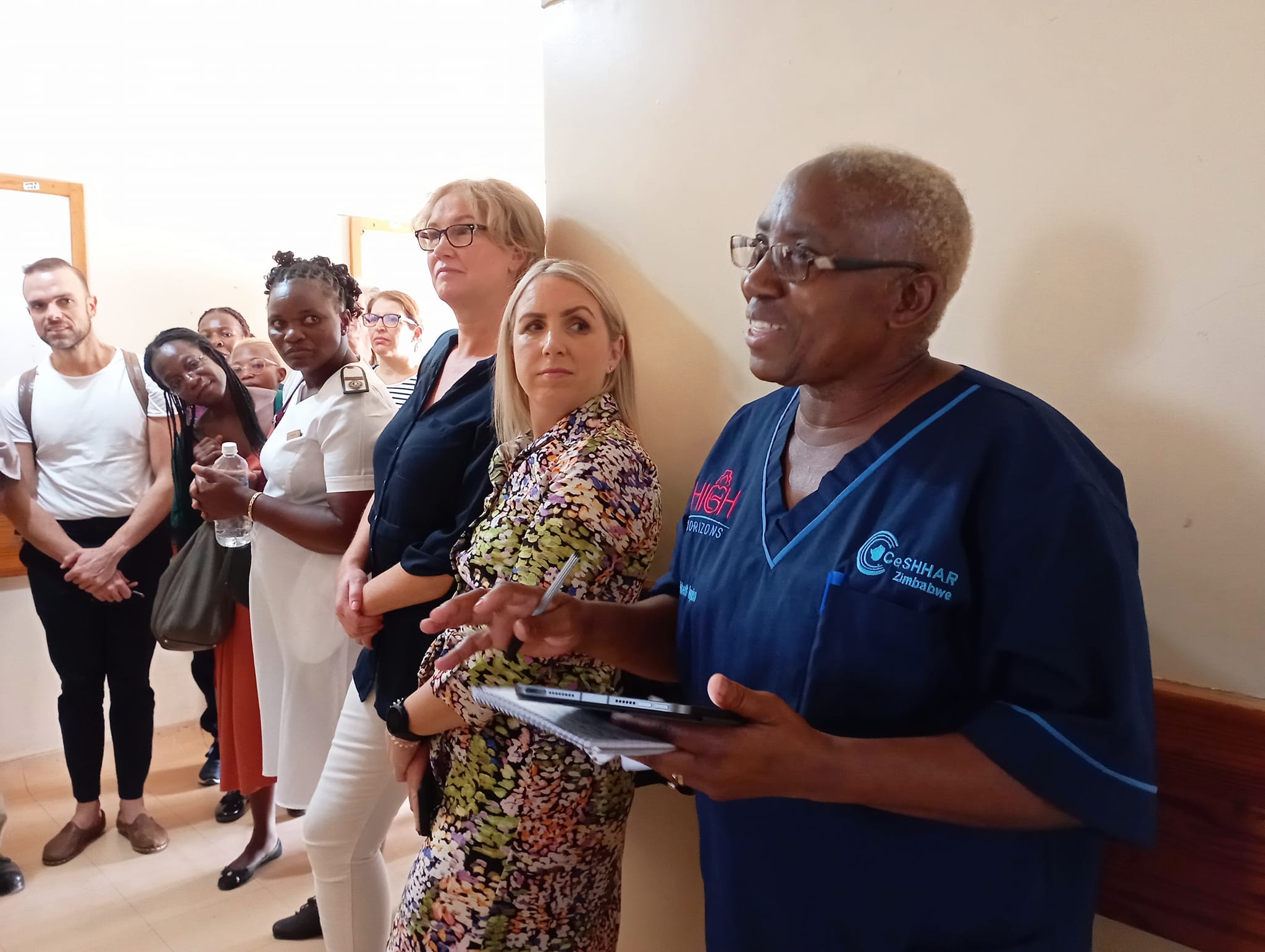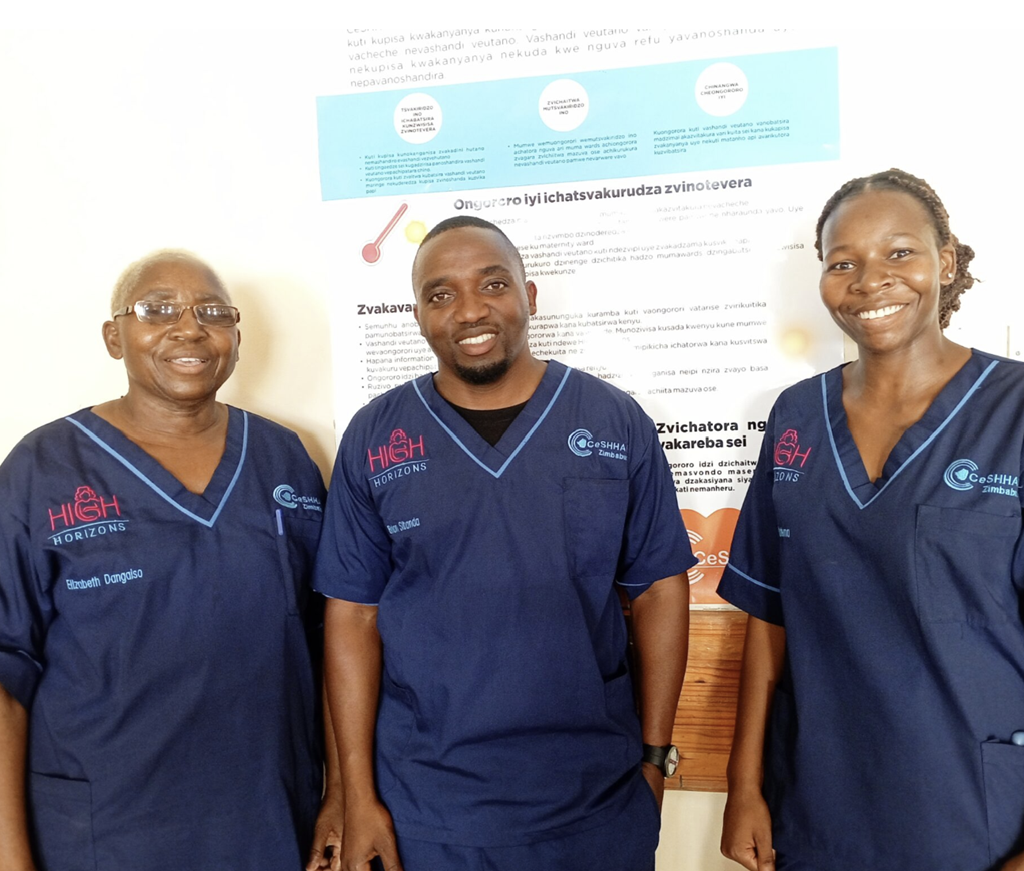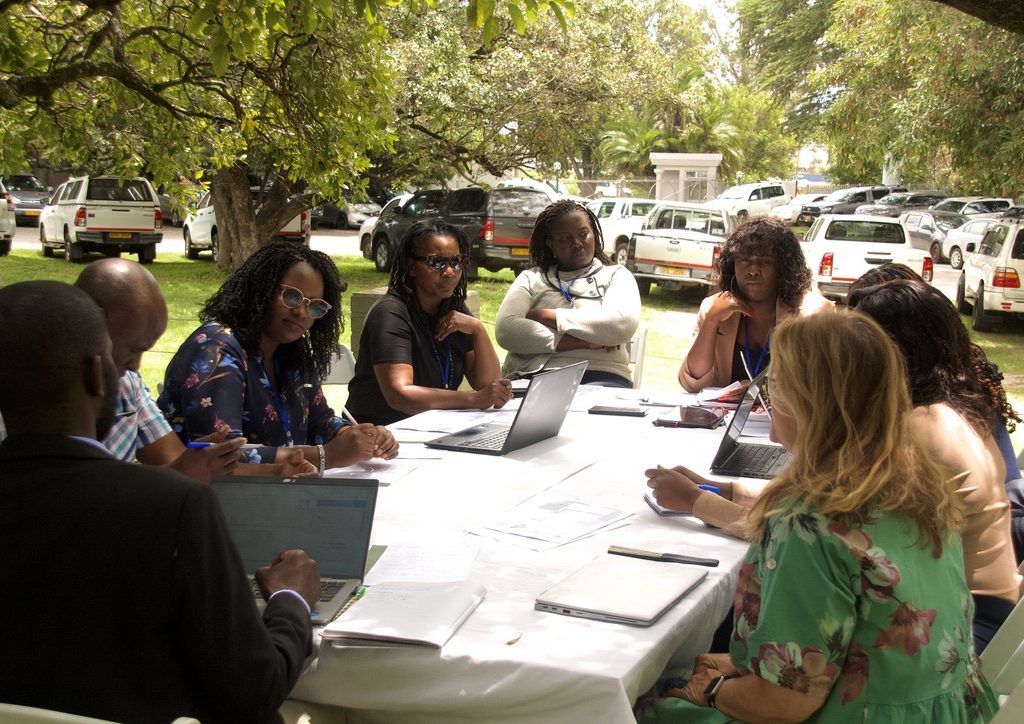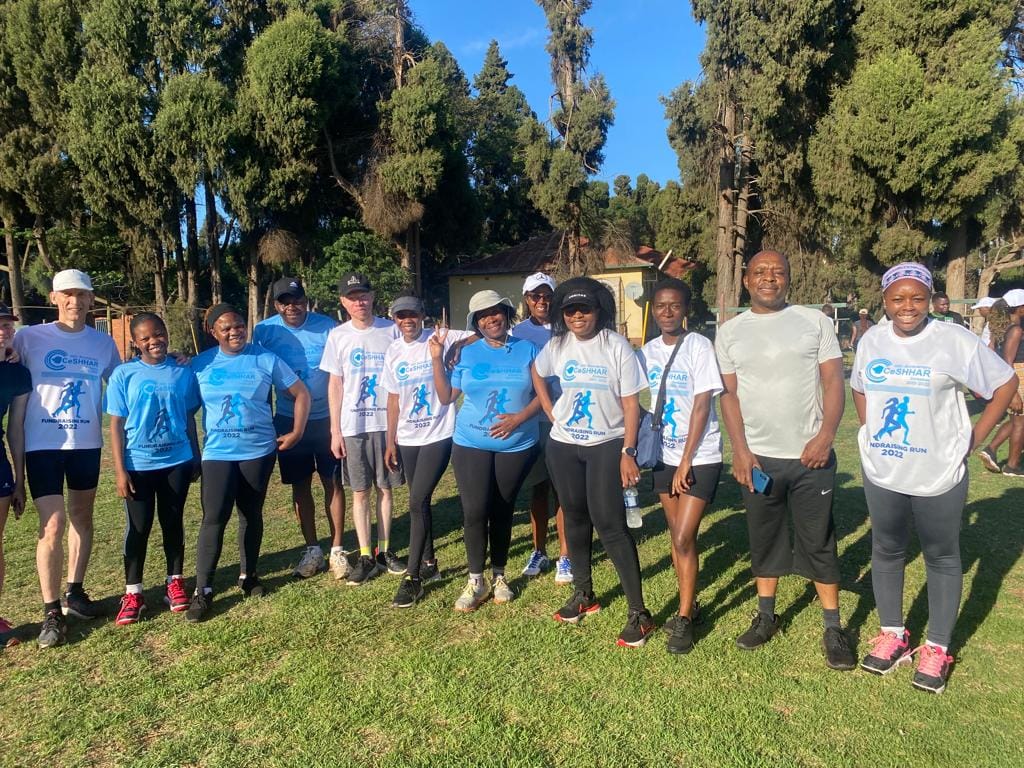CLIMATE, ENVIRONMENT & HEALTH
CeSHHAR Zimbabwe has hosted The Annual CeSHHAR Early Career Researchers and Innovators (ECRI) conference in 2023, and The Climate and Health Africa conference in 2024




HEAT AND HEALTH AFRICAN TRANSDISCIPLINARY CENTER (HE2AT CENTER) - NIH
Aims to examine the effects of ambient heat on Maternal, Neonatal and Child Health (MNCH) outcomes in sub-Saharan Africa.


CHARACTERISING EFFECTS OF AIR QUALITY IN MATERNAL AND NEONATAL CHILD HEALTH (CHEAQI-MNCH) - NIH
Aims to examine the effects of ambient heat on Maternal, Neonatal and Child Health (MNCH) outcomes in sub-Saharan Africa.
HEAT ADAPTATION FOR PREGNANT WOMEN & INFANTS PROGRAM (HAPI PROGRAM) - WELLCOME TRUST
Aims to identify impact of rising temperatures on maternal and newborn health and advance heat-adaptation policies and practices in low/middle-income countries.


HEAT INDICATORS FOR GLOBAL HEALTH HORIZONS (HIGH HORIZONS) - EUROPEAN COMMISSION
Aims to co-develop solutions (adaptation and mitigation interventions) to protect pregnant, post-partum women, children, and health workers from the adverse impacts of heat.
MERCURY HEALTH AMBASSADORS
The Mercury Health Ambassadors multi-site pragmatic trial implemented in Harare and Bulawayo adopts the use of community health workers trained in the AIMS conversation algorithm to be Health Ambassadors who seek to understand mechanisms that lead to vaccine hesitancy among household heads and use scientific knowledge to foster trust and confidence among the vaccine-hesitant publics.
CARBOMICA
As part of our efforts, we are conducting carbon emission assessments at three health care facilities to identify areas with high carbon footprints prior to implementing mitigation measures. Additionally, we are collaborating with stakeholders from these facilities to select suitable context-specific interventions. To facilitate resource allocation, we have developed a data science prototype tool named CARBOMICA, which aids in informing the selection of a package of mitigation interventions to reduce carbon emissions. Furthermore, we have collected valuable data from healthcare workers, which is informing the development of targeted adaptation interventions.
HIGH Horizons heat-health
In preparation for the upcoming HIGH Horizons heat-health indicators workshop in Harare scheduled for 2024, the CEHD has actively engaged in extensive stakeholder consultations. The primary objective of the workshop is to identify and prioritize heat indicators that significantly impact MNCH outcomes. Another anticipated outcome is the establishment of a co-technical working group dedicated to fostering collaboration between the climate and health sectors. To achieve this, crucial stakeholders, including the Ministry of Environment, Climate and Wildlife (MoECW), Ministry of Health and Childcare (MoHCC), Ministry of Local Government, Public Works, and National Housing (MoLGPWNH), United Nations agencies, non- governmental organisations, as well as international and local researchers, have been successfully mobilised and have confirmed their participation.
Collaborations have been fruitful with government institutions taking part in our workshops. The Early Career Researchers’ and Innovators Conference in 2023 was officially opened by the Minister of Health and Childcare, Dr. Douglas Mombeshora. Furthermore, we have been granted opportunities to present our work at full council meetings in the Mt. Darwin District through the cooperation of MoLGPWNH.
The CEHD has successfully finalised a project-level Memorandum of Understanding (MOU) with Midlands State University (MSU), and we are currently working on the broader MOU with MSU. We have also engaged with local academic institutions through meetings with Vice-Chancellors and Pro-Vice-Chancellors. These partnerships have facilitated the delivery of impactful public lectures by Prof. Stanley Luchters and Dr. Tatenda Makanga at both MSU and the University of Zimbabwe.
Furthermore, Dr. Tatenda Makanga presented at the DSI Africa consortium meeting, where he highlighted the recently awarded NIH grant for the CHEAQI MNCH project. This project aims to investigate the correlation between air quality indicators and maternal and child health outcomes. Additionally, Ms. Cherlynn Dumbura delivered an insightful presentation on the characterisation of heat exposure during the same consortium meeting.
The Climate and Health Africa Conference 2024.
The conference is hosted by CeSHHAR Zimbabwe in collaboration with the Zimbabwean Ministry of Environment, Climate and Wildlife and the Ministry of Health and Childcare, kick starting on the 29th of October 2024
Please note that English and French translation services will be available.
